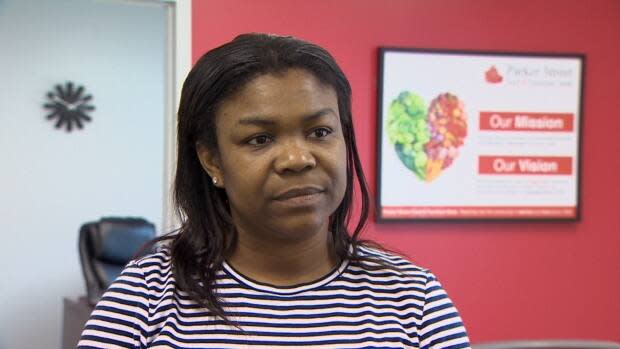N.S. budget doesn't raise income assistance rates, shocks anti-poverty advocates

Nova Scotians who receive income assistance won't see any increase in the coming year, according to the latest budget, troubling professionals who work in the social sector.
Alec Stratford, the executive director of the Nova Scotia College of Social Workers, said the stagnation of income assistance rates for the second year in a row during a time of high inflation will lead to "greater despair, greater demand, greater need for services that we are unable to deliver."
The budget shows $14.2 billion in revenue and $14.4 billion in expenses, with a deficit of $278.9 million. Most of the expenses — $6.5 billion, or 45 per cent of all government spending — will go toward health-care projects.
But Stratford said making sure people have the necessary income to meet their basic needs would have a positive impact on their health.
"We're all here talking about the premier's mandate to fix health care," Stratford told reporters at Province House in Halifax. "There's nothing in this budget that would speak to the social determinants of health which substantially decrease the demand for health care."
Advocates note that economic instability contributes to poor health around the world.
High poverty rate
Nova Scotia's poverty rate of 9.8 per cent was the highest in Canada in 2020, along with British Columbia which recorded the same rate, according to information collected by Statistics Canada in the 2021 Census. The national poverty rate was 8.1 per cent.
Opposition leaders Zach Churchill and Claudia Chender both told reporters they're concerned about income assistance not being increased.
"They are freezing income assistance at a time when inflation is shooting through the roof," Churchill said. "We have a risk of the most vulnerable people in our society having worse health outcomes as a result of this budget."

Increased 'targeted supports'
But Finance Minister Allan MacMaster and Premier Tim Houston both said the government will focus on providing more "targeted supports" to help Nova Scotians.
"We're trying to make sure that we're looking at the full picture and supporting people in the ways that we think we can best support them," Houston told reporters.
This includes increasing the Nova Scotia child benefit by $8 million and adding $28.7 million to the Disability Support Program. There is $8.2 million aimed at homelessness and supportive housing initiatives, and the government will spend $21.6 million to add 1,000 new rent supplements, bringing the total in the province to 8,000.
MacMaster said the budget is "a set of estimates" and could change over time.
"We will always keep the door open to consider options as the year goes on," MacMaster said. "My hope is that we will see a good economy in the year to come ... but we always want to be mindful of those who are not as fortunate and we will continue to provide targeted supports."
'Completely shocking'
Vince Calderhead, a Halifax lawyer whose work focuses on income support, housing issues an human rights, said many people in the sector expected an increase this year.
"It's completely shocking," said Calderhead, who spent 30 years with Nova Scotia Legal Aid and now works for the law firm Pink Larkin. "Everyone who works in this area thought that the premier would do the right thing and at least allow the poorest of the poor to keep up with inflation, to kind of maintain their standard of living."
The enhanced income assistance rate for single recipients — those who are disabled, over 55 or fleeing an abusive situation — is $950 per month, according to the province's website. The standard 'essentials' rate for people living in homeless shelters is $380 per month.
As of March 1, the province said about three per cent of Nova Scotians received income assistance and about 75 per cent of those recipients are single people. One-parent families make up the next largest group with 34,723 beneficiaries
Calderhead says targeted supports, rather than comprehensive programs, can miss the mark and lead to further problems
"What we need in the delivery of social services and health care is universal services," Stratford said. "The targeted approach tends to lead to greater stigmatization and doesn't meet the complete need, particularly when we're talking about child and family well-being."

Food bank use increasing
Denise Daley, executive director of Parker Street Food and Furniture Bank in Halifax, said the organization sees between 35 and 40 new people coming to them for help every day.
She they had 12,000 clients said last year and are already on track to surpass that number this year.
Daley also said her organization has an emergency assistance fund to help people pay for bills like power, heating oil and medication. It's funded mostly by donations, and has already had 100 applicants since January — up from 225 applicants last year.
"It shows that the community is in dire need of help," Daley said. "If there's a significant need, more needs to be done to support them."
MORE TOP STORIES


